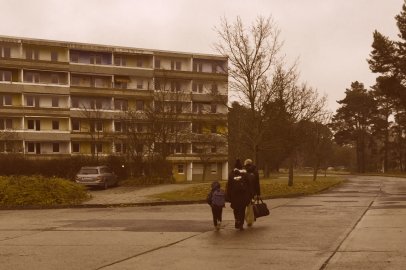Culturally Sensitive Trauma Care Essential for Refugees, German Expert Says
Understanding the Need for Culturally Sensitive Trauma Care
The plight of refugees is a pressing humanitarian issue faced globally. As masses are displaced due to conflict, persecution, and natural disasters, the mental health implications often take a backseat to immediate physical needs. However, as highlighted by a prominent German psychologist, culturally sensitive trauma care is not just beneficial, but essential for the mental well-being of refugees.
Refugees often carry the heavy burden of trauma, stemming from their experiences before and during their displacement. These experiences can include exposure to violence, loss of loved ones, and the stress of navigating a new and often alien environment. As they seek a new life, their mental health must be prioritized, and this is where culturally sensitive approaches come into play.
The Importance of Cultural Context
When it comes to trauma care, one-size-fits-all solutions often fall short. Each individual brings a unique cultural background that shapes their experiences and perceptions of trauma. A culturally sensitive approach recognizes and respects these differences, ensuring that care is tailored to the needs of each refugee.
Key considerations for culturally sensitive care include:
This understanding is crucial, as it allows caregivers to create a safe space where refugees feel understood and respected. The psychological impact of feeling isolated or misunderstood can exacerbate trauma, making it imperative for mental health professionals to engage with refugees in a culturally competent manner.
Barriers to Effective Trauma Care
Despite the evident need for culturally sensitive trauma care, numerous barriers continue to hinder its implementation. Among these barriers are:
Addressing these barriers is crucial for improving mental health outcomes for refugees. Mental health organizations and policymakers must collaborate to create systems that are inclusive and responsive to the needs of diverse populations.
Implementing Culturally Sensitive Trauma Care
To implement culturally sensitive trauma care effectively, several strategies can be employed:
1. Training and Education
Healthcare providers should receive training on cultural competence, enabling them to understand the unique challenges faced by refugees. This education should cover:
2. Community Engagement
Building partnerships with community organizations can enhance the reach and effectiveness of mental health services. Engaging with community leaders and organizations can help to:
3. Incorporating Holistic Approaches
Integrating holistic approaches that respect and utilize traditional healing practices can enhance the mental health care experience for refugees. This might include:
The Role of Policymakers
Policymakers play a critical role in ensuring that culturally sensitive trauma care is prioritized in the larger refugee support framework. To improve access and quality of mental health services, they should consider:
By prioritizing these strategies, policymakers can help to create an environment where refugees feel supported not only in their physical needs but also in their mental health journeys.
Conclusion
In conclusion, the need for culturally sensitive trauma care for refugees cannot be overstated. As refugees navigate the complexities of resettlement, their mental health must be treated with the same urgency as their physical needs. By recognizing and respecting cultural differences, addressing barriers to care, and implementing effective strategies, we can create a more supportive and inclusive environment for those who have experienced profound trauma.
Ultimately, a commitment to culturally sensitive trauma care is not just a best practice; it is a moral imperative that can significantly impact the lives of refugees seeking to heal and rebuild in a new land.










